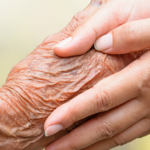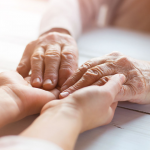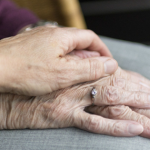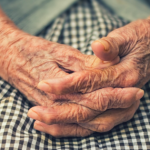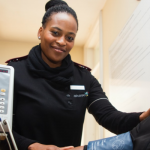Tell-Tale Signs Your Guardian Might Need A Guardian
 It can be hard to admit a parent or guardian is showing signs of aging. But countless elderly individuals can benefit from the help of an adult guardian. If you’re worried about the health and livelihood of your parent or guardian, here are some telltale signs to look for that signify a guardian is needed.
It can be hard to admit a parent or guardian is showing signs of aging. But countless elderly individuals can benefit from the help of an adult guardian. If you’re worried about the health and livelihood of your parent or guardian, here are some telltale signs to look for that signify a guardian is needed.
Financial signs
One of the most often overlooked signs a relative might need a care guardian is financial trouble. This can take many forms, whether it be the occasional bounced check or the inability to afford necessary medical treatment.
But it might show up in other, more subtle ways. Your loved one may not be able to afford the annual trip down for the holidays. Their car may break down more frequently. Signs of financial stress are common in today’s economic climate but a serious shift in financial stress can be a sign your loved one needs a patient care advocate or other financial care guardians.
Physical signs
The more obvious physical signs of aging are difficulty moving around and frequent bruising. As your loved one ages, the stress experienced by joints and muscles can make it difficult to perform daily activities. Your loved one might visit their primary care physician more often or visit an urgent care facility.
But there are also more subtle signs to watch out for. Weight loss is common among those who forget to eat or lose their appetite in older age. Other signs of poor physical health may show around the house; an unshoveled driveway or a smelly house. For those who experience rapid physical degeneration, this change can be swift and hard to manage. It’s estimated that nearly 80% of senior citizens suffer from one or more chronic diseases while 68% will suffer from two or more.
Mental signs
Forgetfulness is one of the most common signs of aging and one of the primary reasons you may seek an adult guardian for your loved one. Between forgetting to eat, missing necessary doses of medication, and getting lost in well-known neighborhoods, your loved one may need to enter an elder care facility to ensure their daily needs are met.
Other signs your loved one may need an adult guardian include debilitating anxiety and depression, missing essential appointments, and confusion when it comes to performing familiar tasks.
You love your guardian figure, but any aging adult can benefit from the help of a healthcare advocate and elder care service. For more information on helping your loved one as they age, don’t hesitate to call or visit Care Navigators online today.


